In Review: 'Superman,' 'Don't Let's Go to the Dogs Tonight'
This week, James Gunn's Man of Steel has a heart of gold and writer-director-star Embeth Davidtz revisits Zimbabwean history from the eyes of a child.
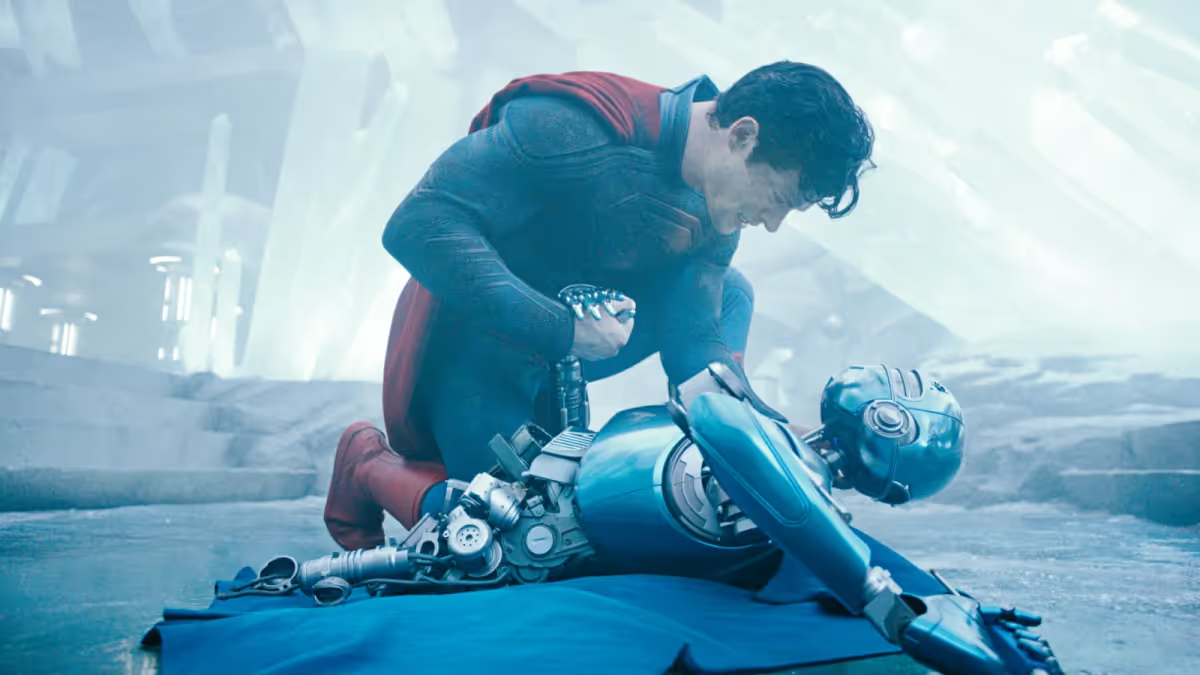
Superman
Dir. James Gunn
129 min.
Superman doesn’t waste much time getting started, opening with a string of text designed to bring viewers up to speed on what’s happening in the life of the Man of Steel while outlining the basics of the world in which he lives. The (correct) assumption here is that most people turning up for Superman know the basics already. This is the ninth Superman movie (if you count Justice League), to say nothing of his appearances in other media (including, of course, comics), and the fourth film to introduce a new big-screen Superman. It’s an efficient way of getting directly to the action while simultaneously offering hints of the larger cinematic universe for which Superman will serve as a cornerstone. Krypton. Smallville. You know the deal, writer and director James Gunn assumes. Let’s move onto other matters.
That might sound a bit irreverent, and Gunn (who’s also serving as the architect of DC’s new attempt building a film and TV world around its comic book character) certainly doesn’t abandon the breezy, quippy tone familiar from the Guardians of the Galaxy movies, The Suicide Squad, and Peacemaker (the latter two his previous live-action ventures into the DC world). But Superman also makes clear that Gunn’s just as intent on keeping, and increasing, the emotional weight at the heart of those projects. Here Superman (David Corenswet) enters the film in defeat, having lost a battle to a supervillain representing Boravia, a totalitarian European nation whose aggression Superman has decided to keep in check—before making his way, with the help of his dog Krypto, to the icy Fortress of Solitude. There he can be healed by beams from Earth’s yellow sun and soothed by a fragmented video of his Kryptonian parents (Bradley Cooper and Angela Sarafyan), the one laying out why they sent him to Earth in the first place that’s become a kind of mission statement. For a virtually invulnerable being, this Superman turns out to be easy to damage.
He’s fragile in other ways, too. Skipping past the part where Lois Lane (a spirited Rachel Brosnahan) figures out the secret identity of her Daily Planet co-worker Clark Kent, Superman begins at a point where she’s already gotten to the truth and they’ve fallen in love. Theirs is not always an easy relationship, however. After agreeing to be interviewed by Lois as Superman, he finds himself quickly turning peevish when pressed on his recent actions. However much controversy it’s stirred, he knows he did the right thing by standing up to the obvious bad guys of Boravia. Why can’t the rest of the world see it? There’s right and there’s wrong, shouldn’t one be cheered and the other denounced? Why does everything have to be so complicated?
These might seem like odd starting points for the film, a series of scenes in which the hero getting his ass kicked in every way imaginable (he can’t even keep his dog in line), but they prove crucial to the world Gunn’s trying to create, one in which near-mythic characters have tender human sides and the big, wild Silver Age comics ideas can reside within something resembling the 21st century we know. That means supporting characters like the Justice Gang, a makeshift supergroup that includes the blustering, egotistical Green Lantern Guy Gardner (well-cast Gunn favorite Nathan Fillion), the brilliant, ultra-serious Mr. Terrific (Edi Gathegi), and Hawkgirl (Isabela Merced) can make casual drop-ins but also the villainous Lex Luthor (Nicholas Hoult) can bear an unmistakable resemblance to the tech moguls who’ve made the world a demonstrably meaner place. (Luthor, we discover, just uses an army of trained monkeys to do the social media attacks.)
Visually pleasing in ways that break with both the MCU norms and the dark palette of the previous, Zack Snyder-influenced DC films, Superman breaks with precedent in other ways, too, sometimes defiantly. Instead of a Superman willing to smash buildings and accept collateral damage in the form of civilian casualties, we get one who does his best to save everyone, down to Metropolis’ smallest creatures. To watch this Superman is to accept that as a given, and it’s a large part of what makes the film a joy. The zippy (if occasionally overstuffed) storytelling and fun performances don’t hurt either. In addition to its easily flustered hero, a heroine capable of holding her own against him even without superpowers, and a plausibly megalomaniacal villain, the film features a fully staffed Daily Planet led by a gruff Perry White (Wendell Pierce) and an intrepid Jimmy Olsen (Skyler Gisondo). With Superman, Gunn took on the formidable task of laying the foundation for a whole world. He not only pulled it off, he made it one that feels worth visiting, or if you’re a superpowered visitor from another planet, risking everything to save. —Keith Phipps
Superman plunges down from Krypton and into theaters today.

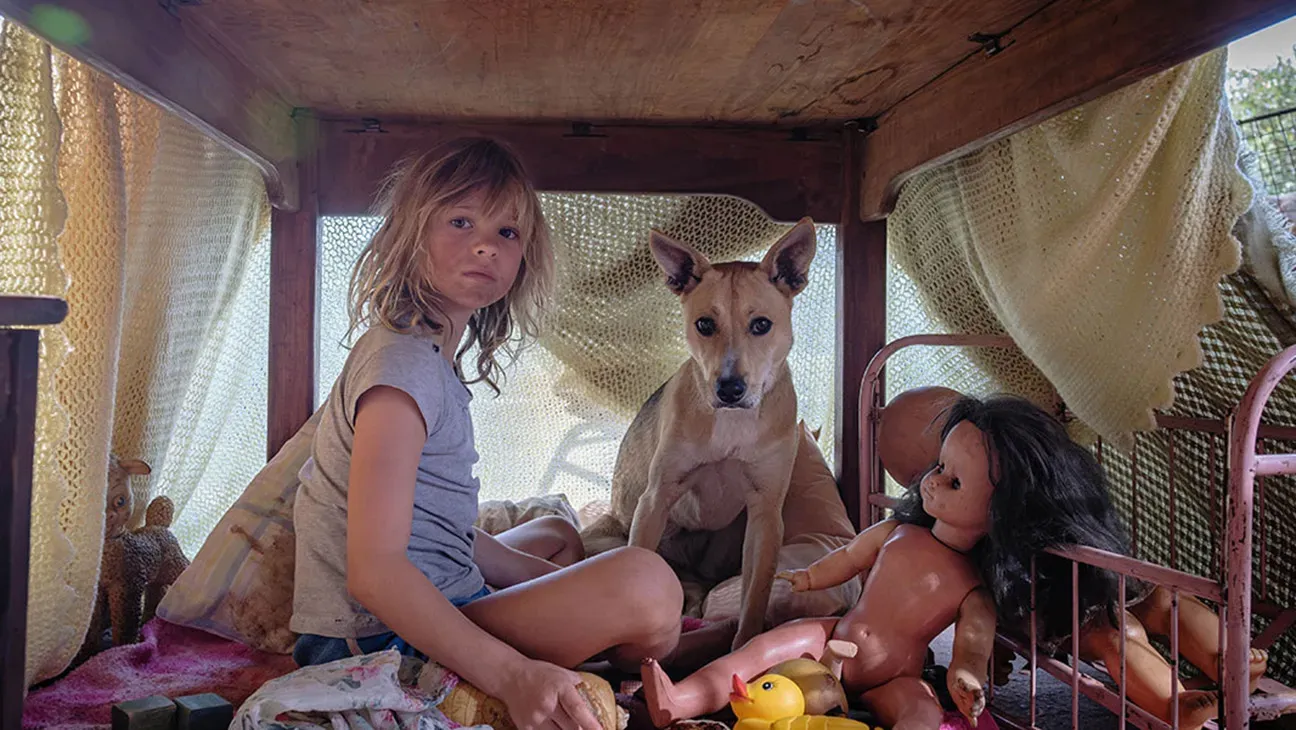
Don’t Let’s Go to the Dogs Tonight
Dir. Embeth Davidtz
100 min.
It is only partially insulting to say that Don’t Let’s Go to the Dogs Tonight, a mostly well-judged adaptation of Alexandra Fuller’s memoir about her experiences as a White Zimbabwean around the 1980 Rhodesian Bush War, makes you want to seek out the source material. Writer-director-star Embeth Davidtz, making her debut behind the camera after decades in front of it, leans heavily on narration from young Fuller’s point of view as a curious, bedraggled seven-year-old girl with a limited understanding of the historical upheaval that engulfs her family. Davidtz sticks closely to that perspective, with oft-impressive rigor and visual invention, but that type of interiority is an advantage books tend to have over movies. And as well as Davidtz accounts for that first-person angle, there’s an inherent awkwardness in trying to dramatize the action around it. Barring a stylistic workaround as radical as the one Ramell Ross pulled off in last year’s Nickel Boys, it’s a hard obstacle to overcome.
Still, Davidtz does her best to try, starting with the casting of Lexi Venter as Fuller, a gap-toothed wild child who everyone called by her nickname, “Bobo.” The Fullers are not monied European landowners, but tenant farmers clinging to their land in the final days of Rhodesia, before an election would give power to the Black majority in the country and return to the pre-colonial name of Zimbabwe. That doesn’t make them enlightened, however: Bobo’s alcoholic mother Nicola (Davidtz) sleeps with a semi-automatic weapon when her mostly absent husband is gone, and she’s given to racist invective, to the point where Bobo is taught to consider all Africans to be “terrorists.” This creates an awkward dynamic with the Fullers’ Black servants, particularly Sarah (Zikhona Bali), who looks after Bobo with more affection and patience than Bobo’s mother does.
By sticking closely to Bobo and the farm, Don’t Let’s Go to the Dogs Tonight feels like a crumbling-estate movie like The Garden of the Finzi-Continis, where the family home feels encroached upon by historical forces it cannot control and will inevitably not survive. That the Fullers’ farm is not an estate at all complicates the story, because they neither fall into the box of the rich white minority nor identify in the least with the African majority. Even at such a young age, Bobo does not entirely know who she is, much less what her future will be, and her innocent engagement with the world around her keeps tugging away from her mother’s toxic (and, at times, tragic) point of view. The film is loaded with brow-raising details, like Fuller’s family needing a military convoy to escort them to town to dodge potential guerrillas and landmines, but there are gaps in the drama, too, that the narration can’t entirely patch up. There is, in two senses of the word, a Fuller story to be told here. — Scott Tobias
Hey ho, Don't Let's Go the Dogs Tonight opens in limited release tonight.


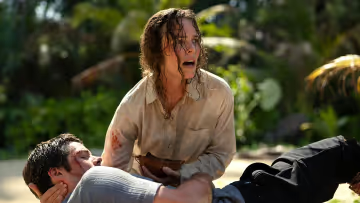
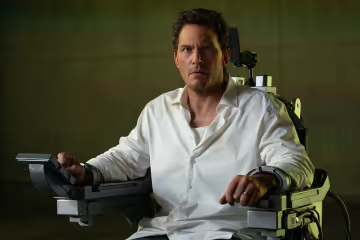
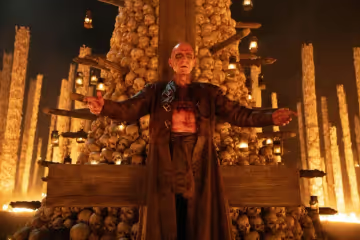
Discussion